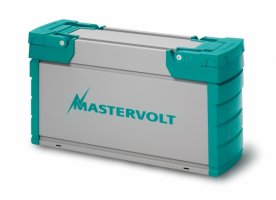You're Right
Having been in a few places where one couldn't just pull in and get my needed parts, I would be hesitant to put such an important item that has circuit boards (see photos on web site) in a boat. Batteries are a necessary item that needs to function. (Especially if you can't hand start the engine.) My experience is that batteries don't usually live in a perfect lab environment on a boat.
So, why exactly do we, as sailors, need something that necessitates more money to go boating. Personally, I believe that best value per reasonable dollar is better, and generally, less is more.
LI batteries work well in a small devices that we really don't need but I don't see them improving my sailing experience.
Dal
E-39 "Stillwater"
Hi Dal, I noticed the same potential problem when looking at the product images. Yikes.
Putting on my Pontification Hat for a minute...
I see this as much more of a concern than the slow evolution of other
mechanical technology like roller furling, that went from a novelty in the 70's to mostly-taken-for-granted-for-everyday-use nowadays.
Electronics, like all things electrical, is much more subject to catastrophic failure in a sea water environment.
OTOH, I also believe that one should "never say never"... after all, I watched the early tiller pilots with their dodgy water-proofing progress to the point where they last a lot lot longer... :nerd:
Navigation electronics, filled with pc boards that would fail at the slightest whiff of salt, now are better-sealed and work for years or until you replace them with little boxes with newer bells n whistles....

Still, the marine environment is about the harshest there is, and it's
still difficult to keep "simple" lead acid batteries and their associated wiring systems going for periods of time in extended usage off shore.
Regards,
Loren (who, in spite of all the electrical complication,
really really likes his refrigeration!)


